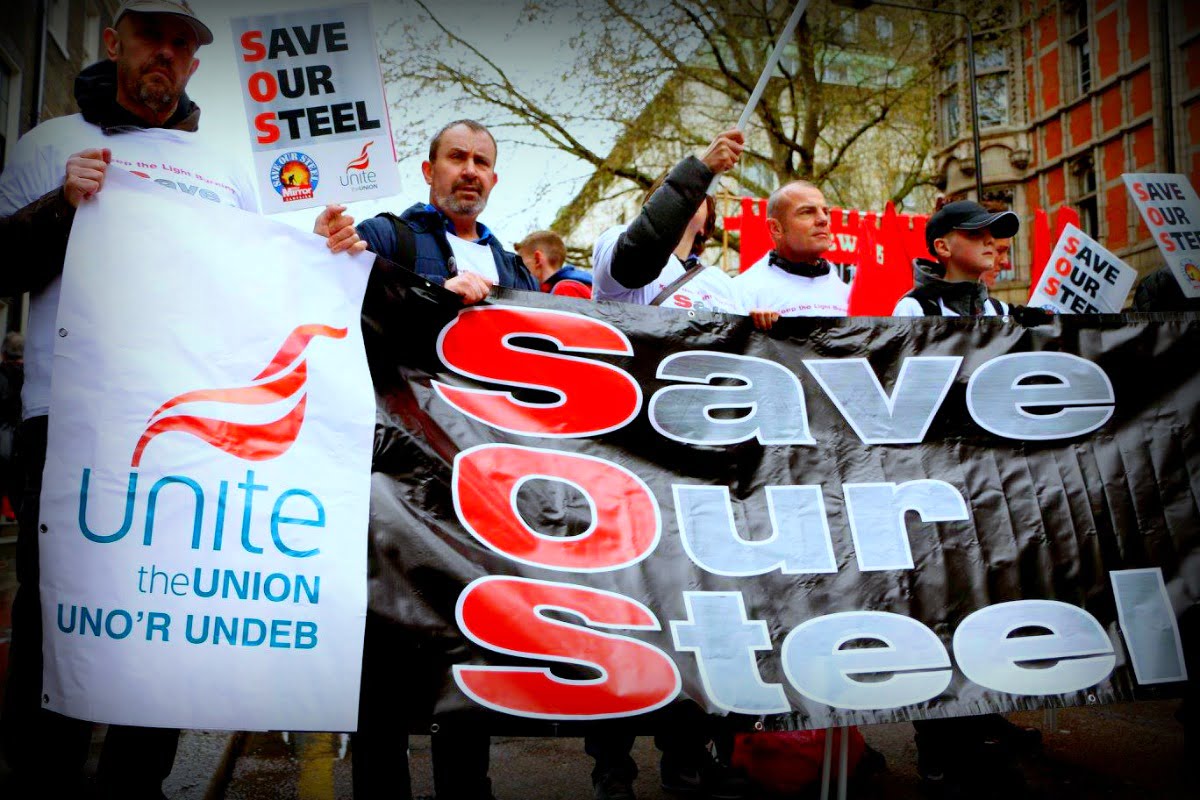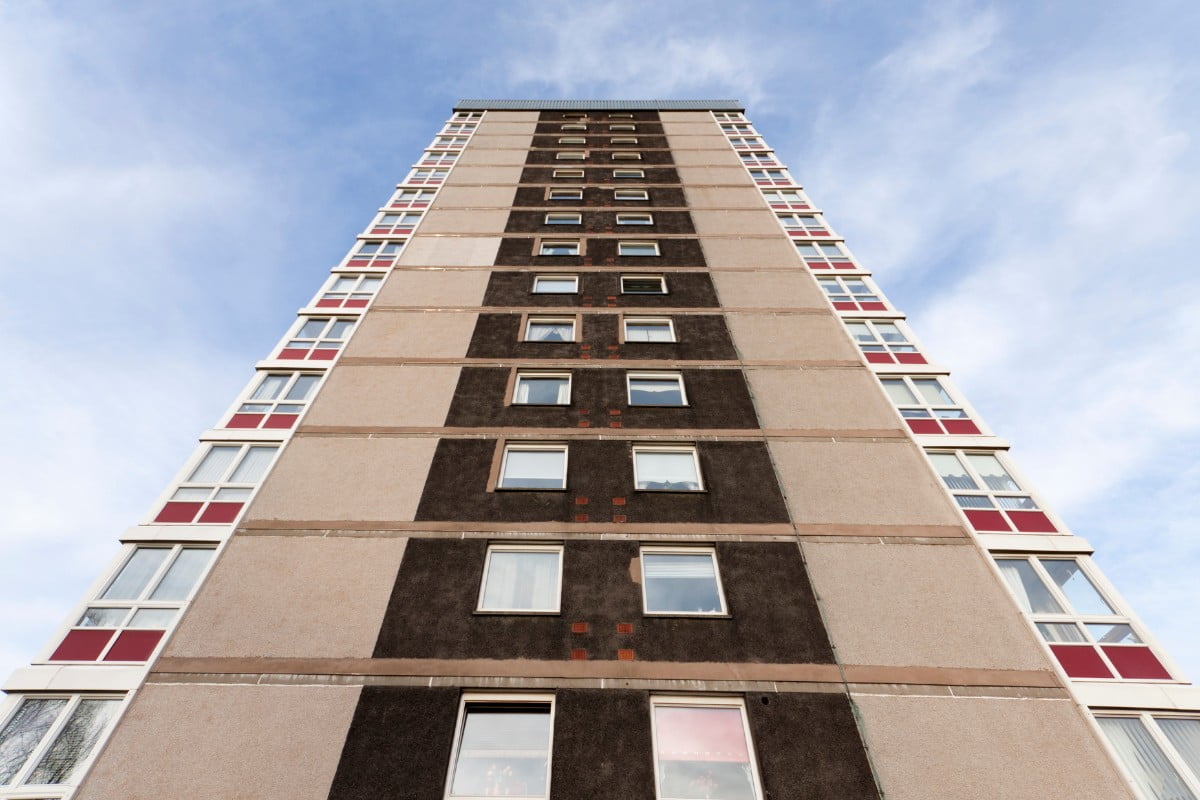Miles Todd from Scunthorpe discusses the latest developments in the steel crisis, as the Tories frantically search for a buyer to fill the shoes vacated by Tata. The Scunthorpe plant has been sold to asset strippers for the nominal price of £1. But what is the fate for workers and steel communities elsewhere?
The decision by Tata, the Indian-owned conglomerate, to sell off its UK operations comes as no surprise to those who have been following the chequered history of the British steel industry.
As long ago as last October – when Tata announced 900 job losses at its Scunthorpe plant, followed closely by a further announcement of thousands of job cuts at its Port Talbot plant – it was becoming obvious that the steel multinational was looking for an exit strategy. Now it appears that Tata has set a date of 28th May to sell off what remains of the British steel industry.
Teesside’s steel plant has already fallen by the wayside. A buyer – Greybull Capital, a multinational investment corporation – has been found for Scunthorpe, which is just about breaking even with the help of a very profitable contract to supply 120,000 tons of rail to Network Rail. Port Talbot steel, meanwhile, ends up in a spectrum of products – everything from 5 pence coins, Nissan cars, drink cans, fridges and other household products.
Tata originally bought the Anglo Dutch steelmaker Corus in 2007 for £6.2 billion. This was a year before the biggest recession and capitalist crisis since the 1930s.
Global steel crisis
 The reality is that there is a generalised crisis of steel across the whole world, not just in Britain. In China, hundreds of thousands of steelworkers have been sacked in the recent period, and in the first quarter of this year economic growth fell by a further 0.4%. Now in China, 1.3 million jobs in coal and steel are expected to be lost as the Beijing government attempts to reduce its excess capacity in these sectors. This is a finished recipe for social and political explosion in the next period.
The reality is that there is a generalised crisis of steel across the whole world, not just in Britain. In China, hundreds of thousands of steelworkers have been sacked in the recent period, and in the first quarter of this year economic growth fell by a further 0.4%. Now in China, 1.3 million jobs in coal and steel are expected to be lost as the Beijing government attempts to reduce its excess capacity in these sectors. This is a finished recipe for social and political explosion in the next period.
China is by far the biggest global producer of steel, with an annual production of over 1,500 million tonnes of steel – more than Britain has produced from 1870 to the present day. The economic slowdown in China and the resultant diminished levels of construction has led to an enormous glut of steel. More Chinese steel output therefore ends up being export to the world market, putting steel-producers in other countries, who cannot compete with this subsidised tsunami of steel, out of business.
It is this excess capacity – or overproduction, to give it its real name – seen not only in steel, but across the board, that is at the root of the crisis of capitalism. Capitalism’s ability to produce comes up against the limits of the market, which cannot absorb the tremendous wealth of commodities churned out by modern industry.
In Britain there is a special crisis, arising from decades of neglect by the capitalists, who have failed to invest in industry and have instead sought a quick profit from finance and speculation. As a result, we see a downward spiral in the manufacturing sector, which continues to bleed jobs across the board.
Worldwide there have been little signs of any real recovery, and now China, which was seen as the great Eastern wonder, is now painted as the villain for its attempts to export its crisis and unemployment to the rest of the world. But the Chinese government is only doing what every capitalist nation state does: protect its industries and profits at the expense of others. Such beggar-thy-neighbour policies are the logical conclusion of capitalist competition in an era of globalisation and world crisis.
Nationalise steel! Make the bosses’ pay!
All the various steelmakers across the world are seeking – and have always sought – protection against foreign competition. The unseemly cabal of trade union leaders, Labour MPs, Tory ministers and the tabloid press calling for tariffs and import controls against Chinese steel offers no solution.
Workers in Scunthorpe have just been balloted to accept a 3% wage cut for a year, along with and an end to the final salary pension scheme. In other words, the workers are being asked to pay for a steel crisis that they did not cause. Socialist Appeal supporters at the steelworks voted against this blackmail, but the most likely outcome is a Yes vote – not surprisingly when the alternative, as far as many see it, is a walk to the dole office. As one local steelworker put it, “At least I get to keep my house and car”.
Both Unite and Community – the unions representing steel workers – have welcomed Greybull Capital’s takeover and the return of the 1988 name of British Steel. The union leaders go as far as to pat themselves on the back for securing this deal, which will quickly unravel in the face of a new world slump. Whatever happens, terms and conditions for workers at Port Talbot, Scunthorpe, and elsewhere, will come under attack.
It is clear that private owners – that is, the parasitic capitalists – cannot be trusted to run the industry in the interests of steel workers, working class communities, or society as a whole. They are interested only in asset stripping and making a quick profit.
Rather than applauding the Greybull deal and calling for similar such purchases, the Labour and trade union leadership should be calling for nationalisation – under workers’ control and management – of the steel industry. Only in this way, as part of a socialist plan of production, can we guarantee jobs and ensure that our industry is run on the basis of society’s needs, and not the capitalists’ profits.







